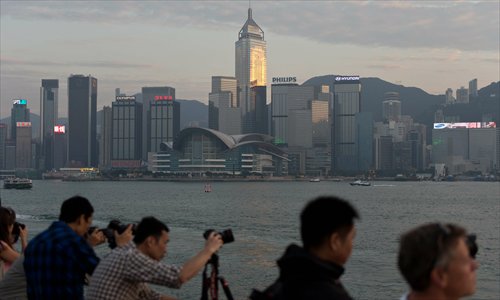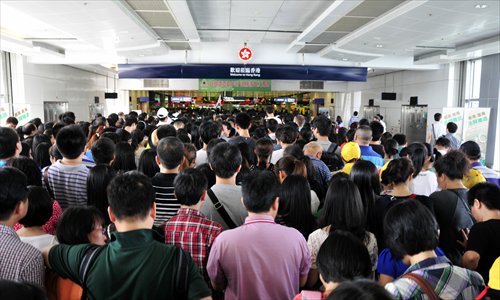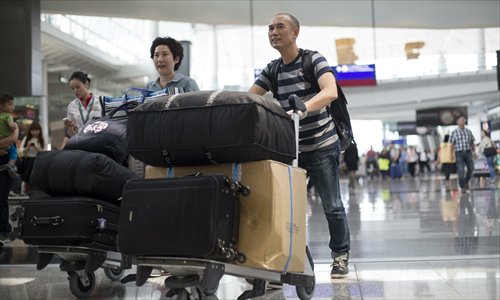Taiwan protesters vow mass rally in 'war' against China pact
AFP
March 28, 2014, 1:54 am

Taipei (AFP) - Taiwanese protesters opposed to a contentious trade pact with China on Thursday vowed to escalate their "war" with the government, calling for a huge weekend rally to increase pressure on President Ma Ying-jeou.
The student-led demonstrators who have occupied parliament for more than a week urged people to take to the streets of Taipei on Sunday after failing to reach an agreement with Ma's Kuomintang government.
"Ma is not sincere, on the one hand he is willing to talk but the Kuomintang will not back down (on the trade pact).
"There is no meaning to hold a dialogue... We invite everybody to take to the streets on Sunday," student leader Lin Fei-fan said in a press conference outside parliament.
"We want to tell Ma the people's opinions and tell politicians that they have to be responsible and face the people."
The pact, signed in July, is designed to open up further trade in services between China and Taiwan, which split 65 years ago after a civil war.
But the protesters say the deal will damage Taiwan's economy and leave it vulnerable to political pressure from China.
They are now demanding the agreement be scrapped and the passing of new legislation to monitor all agreements with China.
Lin said the demonstrators were not going to give up until their demands were met.
"There is no finishing time," he said.
"The time we finish is when the Ma government bows its head. We are waging war on the Ma government."
The protestors occupied parliament on Tuesday last week and swiftly drew a large crowd of supporters, with more than 10,000 congregated outside the building at one point.
A group of radical protesters on Sunday stormed the nearby government headquarters but were dislodged by baton-wielding police and water cannon.
The violent dispersal of the protesters has added to the tensions while Premier Jiang Yi-huah has defended the use of force, saying the government "cannot sit back and disregard actions that jeopardised national authorities and social order".
Ma and protest leaders said Tuesday they would like to talk, but failed to reach agreement on how the dialogue should be held.
Ma has warned that failure to ratify the pact would be a grave setback to trade-reliant Taiwan's efforts to seek more free trade agreements and avoid isolation as regional economic blocs emerge.
The deal is a follow-up agreement to a sweeping Economic Cooperation Framework Agreement signed in 2010 to reduce trade barriers between China and Taiwan.
Ma has overseen a marked thaw in relations with Beijing since he came to power in 2008, pledging to strengthen trade and tourism links. He was re-elected in January 2012.
But China still considers Taiwan as part of its territory awaiting reunification -- by force if necessary.



